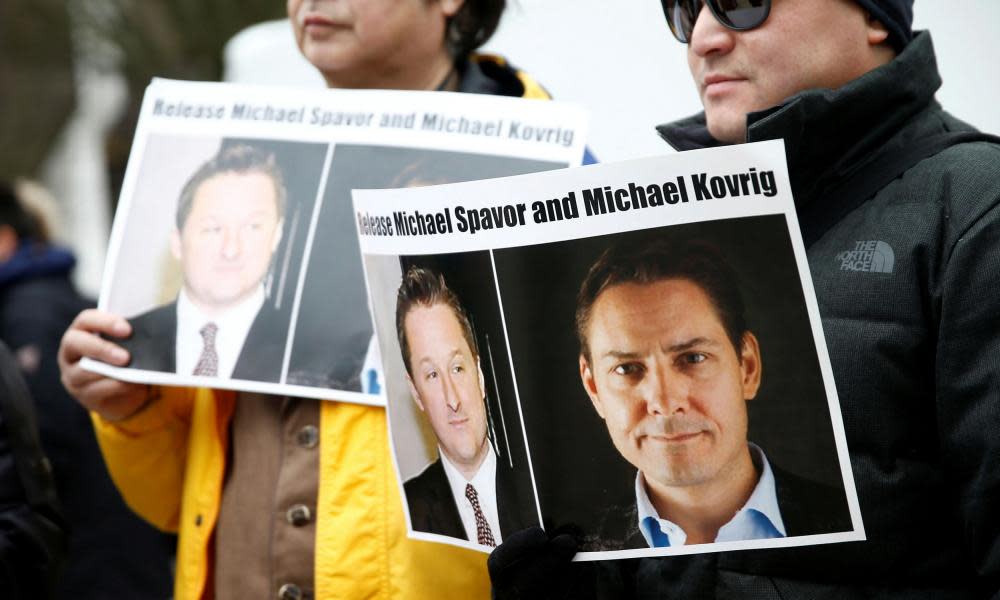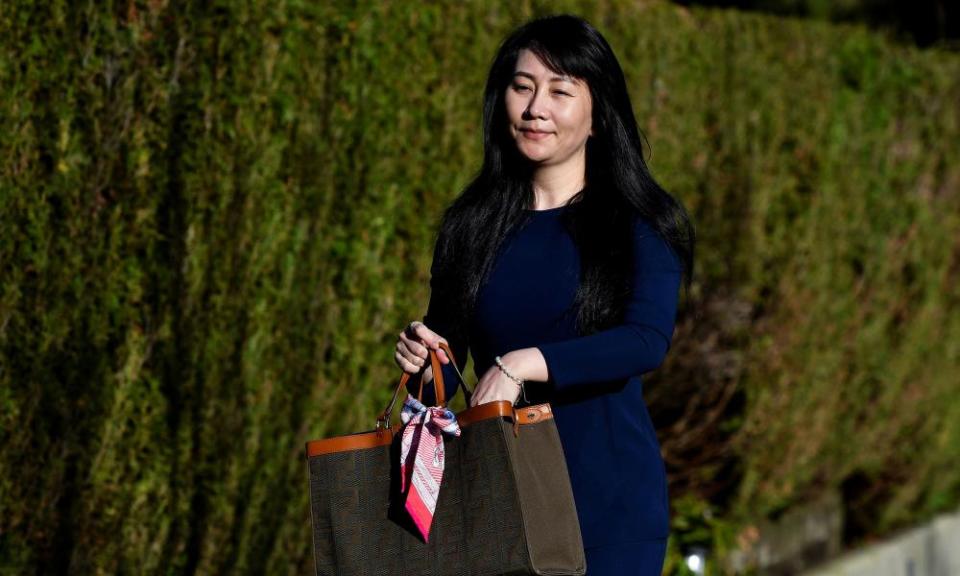Path to freedom narrows for detained Canadian duo caught in US-China feud

For more than 830 days, Michael Kovrig and Michael Spavor have been detained in Chinese jail cells, facing espionage charges that legal experts and diplomats have denounced as baseless.
But as the two men finally face trial, their supporters recognize that the two Canadians – caught in the centre of a diplomatic feud between the United States and China – face a narrowing path to freedom.
Kovrig, a former diplomat, and Spavor, a businessman, were arrested in December 2018 in a detention widely viewed as retaliation for the arrest of Huawei’s chief financial officer, Meng Wanzhou, earlier that month.
In the years since, the two men have endured hours of interrogation and isolation, with rare visits by consular officials. China alleged that the two posed a threat to national security, but has revealed few details of the charges against them. In turn, Canada has accused Beijing of “hostage diplomacy”.
Now, the two cases are finally coming to trial. Spavor appeared in court in the northern city of Dandong on Friday for a trial that lasted just three hours. Canadian diplomats were not allowed to attend. Kovrig will be tried on Monday in Beijing.
The Global Times, a state-backed newspaper, says Kovrig is “accused of having used an ordinary passport and business visa to enter China to steal sensitive information and intelligence through contacts in China since 2017, while Spavor was accused of being a key source of intelligence for Kovrig”.
Related: Kovrig and Spavor: China set to begin trial of two Canadians
Friends describe the allegations as hard to take seriously.
“We immediately assumed the charges were nonsense,” said Jacco Zwetsloot, a South Korea-based journalist who had travelled with Spavor.
Spavor lived in the Chinese border city of Dandong, where he ran a business that facilitated sports and cultural exchanges between North Korea, China and Canada. A fluent Korean speaker, he has met the North Korean leader, Kim Jong-un, several times and also arranged the basketball star Dennis Rodman’s visits to Pyongyang.
“Michael didn’t have an interest in the Chinese language. Living in China was often a means to an end for him – so the idea that he somehow learned to read Chinese and become an intelligence source just doesn’t make sense,” said Zwetsloot.
In a statement ahead of the trial, Spavor’s family reiterated calls for his release.
“He loved living and working in China, and would never have done anything to offend the interests of China or the Chinese people. We stand by Michael and maintain his innocence in this difficult situation,” the family said.
Zwetsloot said that Spavor’s personality has probably been an asset during his time in detention.
“I feel reasonably sure he’s doing his best to get on well with his cellmates and his captors. That’s the kind of guy he is,” said Zwetsloot. “He’s not the kind to brood or withdraw into himself. He’s been known to give haircuts to other cellmates. That’s the Michael we know and love.”
Kovrig, a China expert who had previously worked in the Canadian embassy in Beijing, has told his family that he takes 7,000 steps around his cell every day to stay healthy, and devours whatever reading material he can find.
“It’s just unbelievably remarkable and inspiring how he is marshalling every resource available to him,” said his wife, Vina Nadjibulla. The two are separated, but she has remained a strong advocate for his release. “He’s doing everything that he can to come out of this experience healthy and not having been defeated or broken.”
Guy Saint-Jacques – who was Canada’s ambassador in Beijing while Kovrig worked at the embassy – drew a parallel between the two Michaels’ ordeal and a previous row between China and Canada.
In 2014, Canadian officials arrested a Chinese citizen, Su Bin, who was deported to the US on suspicions had stolen top-secret American fighter jet plans.
Soon after his arrest, Kevin and Julia Garratt – a Canadian couple who had lived in China for 30 years and ran a coffee shop – were arrested. Kevin Garratt was charged and convicted on espionage charges. His trial was closed to Canadian officials and lasted only a few hours.
He was eventually deported to Canada in September 2016 after 775 days in detention.

“Michael will know that when he faces the judge on Monday that he has no chance, because it’s all preordained by the Communist party,” said Saint-Jacques.
Looming over both trials is another court case, playing out thousands of miles away in the city of Vancouver.
Huawei executive Meng, who was arrested by Canadian officers at the request of US officials, is fiercely contesting her extradition to the United States.
Experts say China has grown increasingly frustrated with her detention, which it views as an affront to Huawei and to Chinese technological ambitions, and it indicated a willingness to take strong actions to secure her release.
Saint-Jacques said the timing of the two Michaels’ trials – a day after high-level meetings between Chinese and US officials in Alaska – was no coincidence.
“It looks like China wants to play hardball,” he said.
“The Chinese message to the Americans is, ‘We are in the driver’s seat. If you want to help out the Canadians, you have to make concession to us and make sure Meng returns to China.’”
Canada has increasingly pinned its hope of securing a release of the men on the United States, which has become more vocal on the subject since Joe Biden took office.
“Human beings are not bartering chips,” Biden said in late February, mentioning both men by name – and making clear to China that its treatment of American allies would set the tone for future US-Chinese relations.
Nadjibulla said: “No matter what happens, the fundamentals of the situation are the same. These are arbitrary and unjust detentions. Michael is innocent. He has endured this unspeakable situation for 830 days.
“And I hope that this latest development just underscores the urgency for Canadian governments, the United States others to work to find a solution and to bring both of their detentions to an end.”

